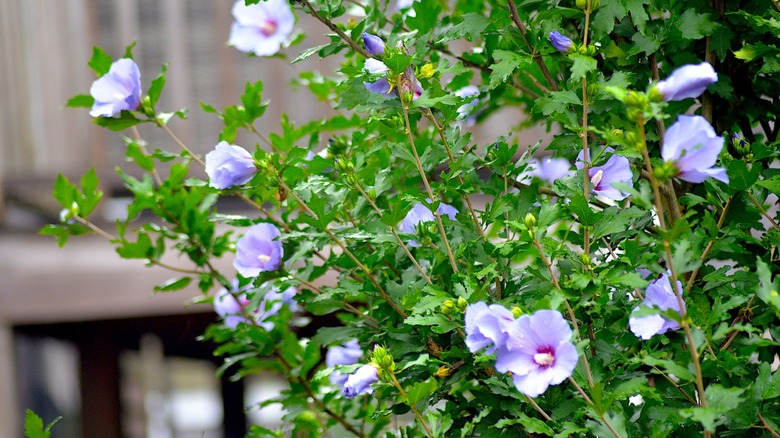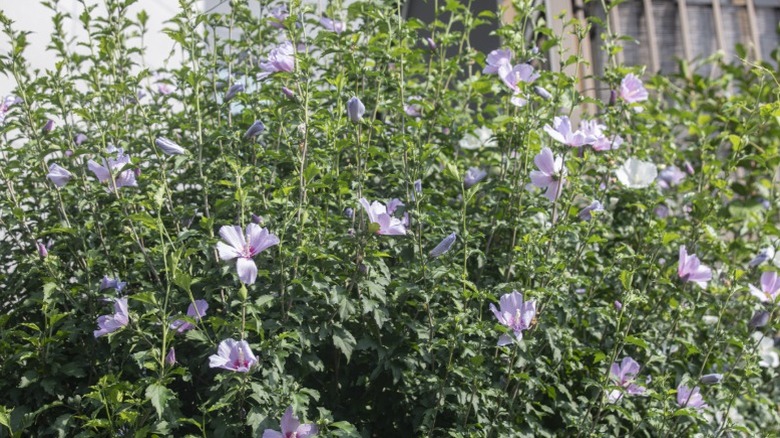The Downside To Althea Flowers That You Can't Afford To Ignore
A bold, showy, flowering shrub, althea (Hibiscus syriacus), is a popular choice to adorn yards in zones 5 through 9. Many gardeners choose to plant this deer-resistant tree to attract pollinators, but you might be asking for trouble. Although it has a beautiful look, the negative aspects of althea might be too much for you to ignore completely. Also known as rose of Sharon, this flowering species is rapid-growing and highly prolific. It can multiply in excess for even an inept gardener. Native to China and Taiwan, althea is considered invasive in several U.S. states, including Kentucky, Pennsylvania, Tennessee, and Virginia.
Althea shrubs are a type of perennial hibiscus, a genus of beautiful flowering plants that add pleasing color and interest to yards. The rose of Sharon shrub specifically can reach up to 10 feet tall and 10 feet wide and is especially hardy in late summer. Its large single or double flowers come in colors ranging from white to red to blue. Despite its adaptability and resistance to many challenges, like heat, salt, and wet soil, do not forget to take into account the weedy downside of this pretty plant.
Why you shouldn't plant althea in your yard
Although althea is not currently regulated as a widespread invasive species, you should take precaution before planting it. Growing althea in a container or raised bed is not a solution because it mainly spreads thanks to producing many seeds. These seeds drop down or blow away and easily self-propagate. Even if you might not see the impact of althea on your own yard, you could be contributing to ecological harm in the surrounding wild habitat.
Although althea is one of the best trees with white flowers, you can look to alternatives that are less weedy. If you want a showy tree with pretty white flowers, the American fringetree (Chionanthus virginicus) is a good option. It features clusters of frilly white petals in spring and is hardy from zones 3 to 9. If you desire a great pollinator species, consider the serviceberry (Amelanchier spp.) which attracts hundreds of butterfly and moth species.
If you really love the rose of Sharon and cannot imagine not growing it in your outdoor space, plant these rose of Sharon varieties to attract hummingbirds and avoid this common issue. Thankfully, sterile or semi sterile cultivars have been developed that do not seed as haphazardly as other althea varieties. Some examples include the lovely lavender and pink 'Minerva' that features a smaller form or the less robust 'Diana' with its white flowers.

